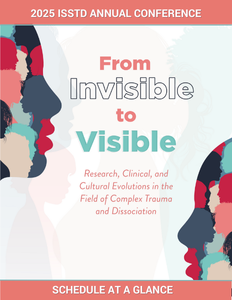Back
90 Minute Workshop
Forgiveness: The Double-edged Sword of Trauma Therapy
Monday, March 17, 2025
8:30 AM – 10:00 AM US Eastern Time
Location: Arlington
Learning Level: Intermediate

Robert T. Muller, PhD, CPsych
Professor
York University
Toronto, Ontario, Canada
Abstract
Forgiveness has become a popular topic in mental health writing. Myriad specialists call us to its high road, and so many have espoused the benefits of forgiveness in clinical contexts. For many, reaching a state of forgiveness can indeed feel relieving, but in practice, when people have suffered from interpersonal trauma, often at the hands of those they've trusted most, forgiveness can be easier said than done. This workshop will take a detailed look at forgiveness in trauma therapy, and will consider the ways in which to a large extent, forgiveness can actually be a "double-edged sword." That is to say, sometimes, forgiveness can be helpful and even necessary for people to move forward, but sometimes it can be downright self-defeating. This makes it a much more complicated concept than once thought. We will examine such topics as rushed forgiveness and how it may affect trauma clients, and circumvent true healing. We'll look at how trauma survivors sometimes feel pressured to forgive, and how that can have a negative impact and can even feel invalidating to many. We will look at apologies and their role in authentic forgiveness. For example, a well-executed authentic apology can lead trauma survivors to feel more inclined to experience true forgiveness. A central intervention strategy will include how to help trauma clients view forgiveness as a process, rather than a virtue. Working with the process of forgiveness can free-up survivors to new ways of thinking about themselves and their relationship to important others. Finally, we will address self-forgiveness, and how sometimes in trauma work, clients and therapists struggle to forgive themselves for their own feelings and choices. Throughout the workshop, clinical material will be used to illustrate central concepts, and attendees will be invited to participate and ask questions in regard to their own clinical decisions.
Forgiveness has become a popular topic in mental health writing. Myriad specialists call us to its high road, and so many have espoused the benefits of forgiveness in clinical contexts. For many, reaching a state of forgiveness can indeed feel relieving, but in practice, when people have suffered from interpersonal trauma, often at the hands of those they've trusted most, forgiveness can be easier said than done. This workshop will take a detailed look at forgiveness in trauma therapy, and will consider the ways in which to a large extent, forgiveness can actually be a "double-edged sword." That is to say, sometimes, forgiveness can be helpful and even necessary for people to move forward, but sometimes it can be downright self-defeating. This makes it a much more complicated concept than once thought. We will examine such topics as rushed forgiveness and how it may affect trauma clients, and circumvent true healing. We'll look at how trauma survivors sometimes feel pressured to forgive, and how that can have a negative impact and can even feel invalidating to many. We will look at apologies and their role in authentic forgiveness. For example, a well-executed authentic apology can lead trauma survivors to feel more inclined to experience true forgiveness. A central intervention strategy will include how to help trauma clients view forgiveness as a process, rather than a virtue. Working with the process of forgiveness can free-up survivors to new ways of thinking about themselves and their relationship to important others. Finally, we will address self-forgiveness, and how sometimes in trauma work, clients and therapists struggle to forgive themselves for their own feelings and choices. Throughout the workshop, clinical material will be used to illustrate central concepts, and attendees will be invited to participate and ask questions in regard to their own clinical decisions.
Learning Objectives:
At the conclusion of this session participants will be able to:
- Distinguish between authentic forgiveness and rushed forgiveness
- Discuss the process of forgiveness in trauma therapy
- Explain the role of apology in the forgiveness process
- Describe the role of self forgiveness in trauma work
- Apply theory to clinical practice through case study

